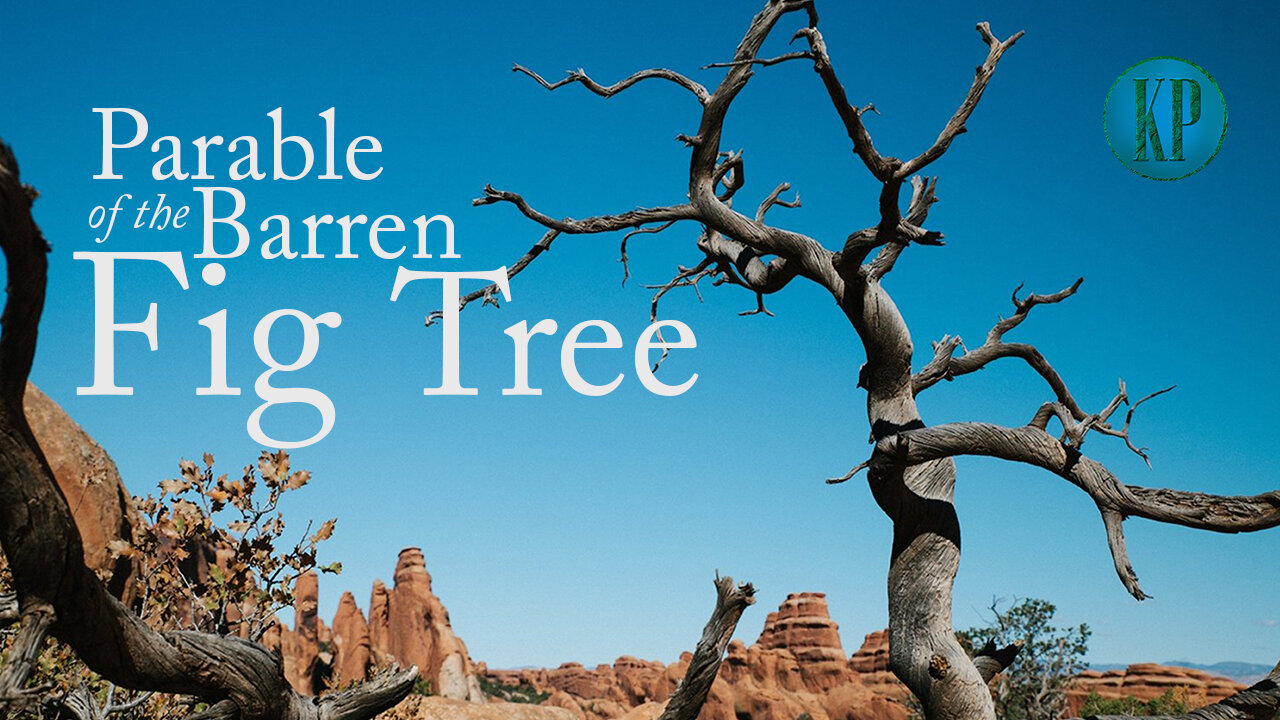A careful examination of Yah’s Word will reveal many interesting and timely tidbits that will add value to your life. And if you prayerfully seek Yah’s guidance as you examine his Word in humility, then many valuable treasures of truth will yet be unearthed. One such treasure is found in the book of Luke. Chapter 13 contains a parable that openly reveals Yah’s probationary timeframe for brand new servants in this walk. Once the seed of truth has been planted in you and you begin to grow spiritually as you receive nourishing light and water from your study of Yah’s Word, you will be given a specific time period to then take what you have learned and actually pass it on in some way. This is known as bearing fruit. In the case of the children of Israel, who are often pictured as a fig tree, the fruit being borne is equated to figs:
6 And he told this parable: “A man had a fig tree planted in his vineyard, and he came seeking fruit on it and found none.”
—Luke 13:6
From verse 6 we see that the man who ordered the fig tree to be planted came seeking its fruit early on. This shows that he expected fruit to be yielded within the first year. In other words, we should begin passing on what we have gathered from Yah’s Word the first year it springs up in us. Now, for some, it is quite understandable that growth in this way will be slow, and the bearing of any kind of fruit will not happen that very year. So, patiently, the man in our parable comes back the second year seeking fruit, and the third, before he decides that something must be done about this particular fig tree he commanded to be planted.
7 “And he said to the vinedresser, ‘Look, for three years now I have come seeking fruit on this fig tree, and I find none. Cut it down. Why should it use up the ground?’ ”
—Luke 13:7
Here we see the owner of the fig tree putting his foot down after three solid years. That is the amount of time each of us are given before we are visited by Yah, who is represented by the man in our parable. You, of course, are the fig tree. And the figs Yah comes seeking year after year for three straight years are the fruits, or righteous works that are to benefit others, you must produce within this timeframe.
Because you have been hoarding the rich nutrients derived from your years of study without bearing any fruit by passing on your light to others in your life, Yah will command that you be cut down; that your learning of truth come to an end. Seen another way, you may have been sharing your light with others, but have refused to live up to the very truth you share or understand, thus failing to bring forth fruit in your own barren heart. Either way, the command that you be cut down remains the same. But there is a twist to this parable, because the command is postponed by the man’s vinedresser, the one who daily tends the vineyard and is fully familiar and intimate with each and every one of his plants:
8 “And he answered him, ‘Sir, let it alone this year also, until I dig around it and put on manure.’ ”
—Luke 13:8
The vinedresser is, of course, Yeshua, the intercessor, ever pleading our cause before the Father. Here, the great redeemer buys the barren fig tree a fourth year in which it is now expected to finally do the work of producing fruit, thus making up for its three years of selfish sustenance. But, rather than leave the fig tree to its own devices this time around, the vinedresser will intervene, shaking up the complacent life of the tree by digging around it and putting on manure to stimulate fruit production.
This drastic action is equivalent to Yeshua shaking up one’s life and forcibly cutting out the things they should have on their own. By digging a circle around the tree, the vinedresser removes turf and greedy grass that competes with the fig tree for water and needed resources while giving back nothing of value. In this way, Yeshua himself often attempts to help souls focus on using what they have learned to produce fruit for others. And this usually occurs in the fourth year of your walk following your awakening if you have not produced fruit during the first three years.
What comes next in the parable is unmistakable. The vinedresser himself, after interceding on behalf of the stubborn fig tree, yields to its owner as follows:
9 “ ‘Then if it should bear fruit next year, well and good; but if not, you can cut it down.’ ”
—Luke 13:9
If, after the intercessory efforts taken in the fourth year, the fig tree should bear fruit in the fifth year, it will be pronounced “well and good.” The barren years of selfish sustenance will be overlooked, in other words. But, if the fig tree still fails to produce fruit in the fifth and final year also, even the vinedresser will cut ties and leave it to the will of its owner, who intends to cut it down, seeing it is useless.
It is for this reason why we see many individuals start off with promise, dispensing the Word of Yah with clarity and truth for a few years only to lose their way thereafter. If you chart their time frame, you’ll note the details of this parable highlighted in their experience. What will be evident is that those souls did not fully believe nor live up to the things they declared openly, thus no fruit was produced in their own hearts for years. Yah is then forced to cut them off from receiving further nourishment (real spiritual light and truth) and instead exacts the words of Ezekiel 14:9.
9 And if the prophet is deceived and speaks a word, I, Yah, have deceived that prophet, and I will stretch out my hand against him and will destroy him from the midst of my people Israel.
—Ezekiel 14:9
This leads those messengers to avenues of false teachings, on which their misguided followers will happily travel along. And other messengers will backslide entirely, abandoning the faith to return to a life of sin and worldliness. The same is true for those who refuse to dispense light in any way during these first three years of being awake, and the subsequent fourth.
Yah will cut you off from receiving further light and truth that would lead to eternal life and you will chase after foolish doctrines instead, producing no fruit whatsoever. In the end, your life will take a turn for the worse. Rather than spinning your wheels trying to figure out which degree you’ll earn toward your career path, or how you’ll acquire enough money to fund your lifestyle, in the first three years of your awakening, and every year after, you should make your main focus and aim that of working in Yah’s field and producing fruits toward the Kingdom. In addition, you must allow your own heart to be filled with the lessons you learned, enabling you to live out the truths you’ve gleaned from Scripture. This is one interpretation of this parable, at the individual level, but it is the interpretation you should take to heart in your personal journey, particularly if you have yet to produce fruit during your walk in the time allotted.
Bonus
Occasionally, I like to insert bonus content here and there if it can aid others by shedding more light on a given subject. With that in mind, I received an interesting email from a reader named Derek H. who, after reading this article, emailed me saying:
Many thanks for this quick study. Daily I pray for knowledge, wisdom, and, most of all, understanding. I have always thought Israel was supposed to be that light on the hill guiding others to the one Truth, Light, and Way. So, is walking in His way, keeping the laws, statutes, and commandments the same as bearing fruit? Should we live a life that makes others want to pursue, [or are we to preach] the Gospel to itching ears?
My prayerful response was:
The bearing fruit is indeed living the laws, statutes, and commandments (having them in your heart) as well as passing that light onto others by way of example in your daily conduct (living Torah). But there are times when you must verbally pass on light as well. The Ruach must direct your steps but the bearing of fruit will always result in others eating of your fruit, and not just you yourself. Think of the natural ecosystem: everything in nature feeds something else. So it must be with us. Light must spread outward, visible to those in darkness, otherwise the light is useless.
Shalom.
Other Articles You Might be Interested In
Feedback Form
TESTIMONIALS
Boom! This word is good. I felt the ground moving under my feet as I read this article. I have been thinking, what am I supposed to be doing with my "new" and "recent" understanding of the Tanakh as it relates to the renewed covenant. Thank you for the insight.
—Miachel R.
This was very well thought. I have been praying over this subject, as there seem to be many thoughts on "bearing fruit." Thank you for sharing.
—Katie B.
This article, along with all of the information that I have run into here just recently over the past few months, have been very eye-opening.
—Gerard A.
This article was so eye-opening. It really showed me the love of Yah. I am just breaking away from the church and it's teachings. I have so many thoughts going on right now. All my years of teaching what I believe was truth. Yah forgive me.
—Julie N.





